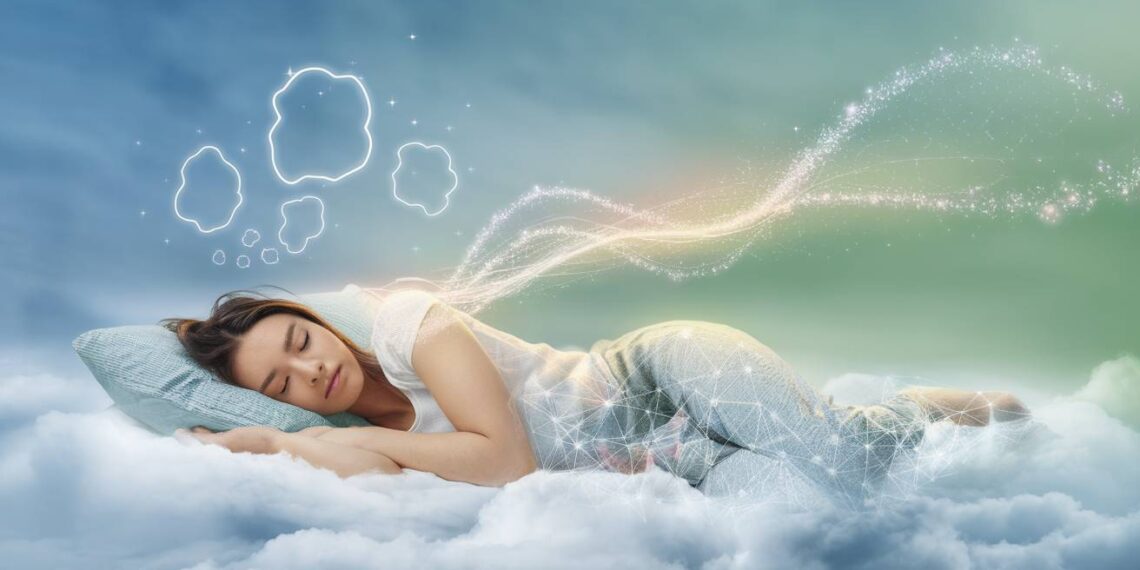Sleep: It’s not just a time-out for your body; it’s nature’s ultimate refresh button. From rejuvenating your physical health and boosting mental sharpness to regulating hormones and enhancing emotional resilience, sleep touches every square inch of your well-being. Yet, it’s often the first casualty in a busy life. Curious how sleep stages, rhythms, and a few tweaks to your habits can transform your game? Let’s explore the science, strategies, and simple fixes that will not only help you sleep better but also unlock an upgraded version of you—brimming with vitality, focus, and resilience.
Key Takeaways
The Connection Between Sleep and Wellness
- Sleep restores physical health, repairs muscles, bolsters the immune system, and regulates hormones.
- Mental clarity, memory processing, emotional stability, and decision-making rely on quality sleep.
Consequences of Sleep Deprivation
- Poor sleep can cause cognitive impairment, emotional stress, and long-term physical health issues like diabetes and heart disease.
Understanding Sleep Science
- Sleep stages (Non-REM and REM) and circadian rhythms orchestrate bodily recovery and brain organization.
- Adults need 7–9 hours of sleep; this changes across life stages, with children needing more and senior adults requiring slightly less.
Optimizing Your Sleep Routine
- Create a serene sleep environment: a comfy mattress, dark curtains, and decluttered spaces work wonders.
- Implement habits like keeping a fixed sleep schedule, avoiding screens, and practicing relaxation techniques such as meditation or yoga.
Lifestyle Influences on Sleep
- Exercise, dietary choices, and mindful relaxation work synergistically to promote better sleep patterns.
- Foods rich in tryptophan, magnesium, and omega-3s aid restorative sleep and overall health.
Tailored Sleep Solutions
- Special circumstances, like shift work or chronic disease, need personalized approaches to get sleep back on track.
- Professionals like sleep specialists, therapists, and nutritionists can help diagnose and treat underlying issues impacting sleep.
Importance of Sleep and Wellness
Understanding the Connection
Did you know sleep isn’t just for your tired eyes? It’s the secret sauce for feeling energetic and sharp. Sleep helps your body patch itself up, keeps your brain sharp as a tack, and makes sure you’re not a grump. While you’re in dreamland, your brain is tidying up, sorting through memories, and taking out the mental trash. Plus, good shuteye gives your immune system a boost and keeps your hormones on track—like a well-tuned orchestra.
| Aspect | Role in Wellness |
|---|---|
| Physical Health | Fixes you up, backs up your immune system, keeps hormones happy |
| Mental Health | Brain sharpness, memory wizardry, emotional calmness |
| Performance | More get-up-and-go, sharper choices, quicker responses |
Want the 411 on how sleep cycles affect your health? Check out our sleep cycles article.
“Sleep is the golden chain that ties health and our bodies together.” – Thomas Dekker
Impact of Poor Sleep on Overall Wellness
Skimping on sleep is like trying to run a marathon in flip-flops—it’s gonna trip you up. Lack of shuteye messes with your head, lowers your body’s defenses, and can lead to troubles like diabetes and heart disease. Not sleeping enough? Say hello to crankiness and stress.
| Consequence | Impact |
|---|---|
| Cognitive Impairment | Concentration struggles, “where-did-I-put-my-keys” moments, bad decisions |
| Emotional Distress | Moody blues, stress spikes, anxiety jitters |
| Physical Health Risks | Tired defenses, sneaky health issues like heart problems |
If you’re curious about how sleep bolsters your defenses, check our sleep immune system guide.
Once folks get how critical sleep is, they can start snoozing their way to better health. A regular sleep routine and sleep hygiene can work wonders.
Whether you’re a go-getter balancing work and play or a gym junkie looking to up recovery, catching Z’s is key to staying on top. Practices like meditation for sleep and yoga for sleep can help score better rest. Need a nudge? Try natural sleep aids and check out our best sleep trackers to make sure you’re snoozing like a champ.
The Science Behind Sleep
Getting the scoop on sleep science is a big deal when you’re looking to feel better day-to-day. Here’s where we chew over what goes on when you’re catching z’s—the different stages and why your inner clock matters.
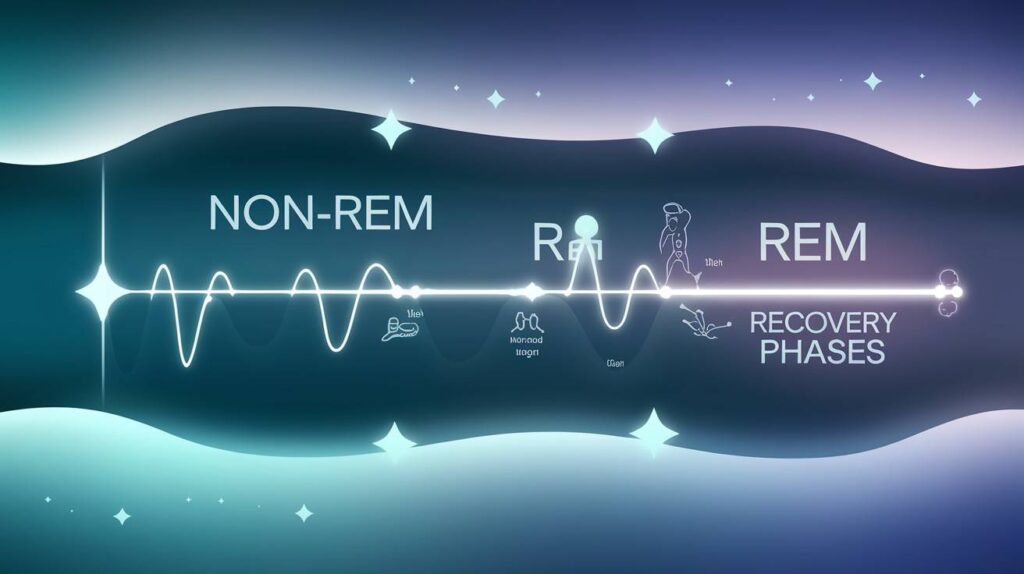
Stages of Sleep
Our nightly snooze is sliced into different parts and guess what? It flips between Non-REM and REM sleep like clockwork.
Non-REM Sleep
- Stage 1: Think of it as dozing off and dipping a toe into dreamland. Lasts just a few ticks, where your body loosens up and you drift from awake to asleep.
- Stage 2: Most of your slumber time hangs out here. Your body cools off, pulse takes a chill pill, and your noggin buzzes with sleep spindles.
- Stage 3: Deep sleep kicks in here, your body’s fix-it shop. Good luck waking anyone at this point—it’s what your body craves for recharging.
REM Sleep
- REM Sleep: Hops in about an hour and a half after nodding off. Brain buzzes with activity, and dreams take center stage. It’s the brain’s way of organizing all the good stuff like memories and new info.
| Sleep Stage | What’s Going On | Time Range |
|---|---|---|
| Stage 1 | Nod-off phase, stepping into sleep | 1-7 mins |
| Stage 2 | Cool down phase, slower pulse | 10-25 mins |
| Stage 3 | Deep refresher phase, body regroups | 20-40 mins |
| REM Sleep | Brain does its thing, dreamland | 10-60 mins |
Circadian Rhythms and Sleep Cycles
Your body’s got this cool clock called a circadian rhythm, ticking away to manage your body’s own day-night pattern, running on a 24-hour timer, swayed by light and surroundings.
How Circadian Rhythms Work
- Getting Light: Natural light’s like a GPS for your body clock helping it stay on the beat.
- Melatonin Magic: When the sun checks out, your body pumps out melatonin, the stuff that steers you to sleep. But beware—any bright blues (screens, we mean you) can throw a wrench in the works.
Sleep Cycles
From start to finish, one go-around usually runs 90 mins, hitting all the sleep stops from Non-REM to REM. Most folks zip through 4 to 6 rounds each night.
| Sleep Cycle | What It Includes | Total Time |
|---|---|---|
| Cycle 1 | Kick things off with Stage 1 to REM | 90 mins |
| Cycle 2 | Roll through Stage 1 to REM again | 90 mins |
| Cycle 3 | Repeat the drill from Stage 1 to REM | 90 mins |
| Cycle 4 | Back at it from Stage 1 to REM | 90 mins |
| Cycle 5 | One more lap from Stage 1 to REM | 90 mins |
Knowing the drill can help set your sleep pattern right and try out stuff like meditation for sleep to get in sync. If snooze problems follow you around, getting a pro’s take is worth it. Keep your internal clock ticking right, and it’ll boost your mood, energy, and overall vibe.
Sleep and Its Effects on Different Life Stages
Ever noticed how the amount of sleep you need changes over time? Turns out, it’s all part of growing up (and growing old). Give yourself a break—or take one. Let’s see what’s up with sleep at every age.
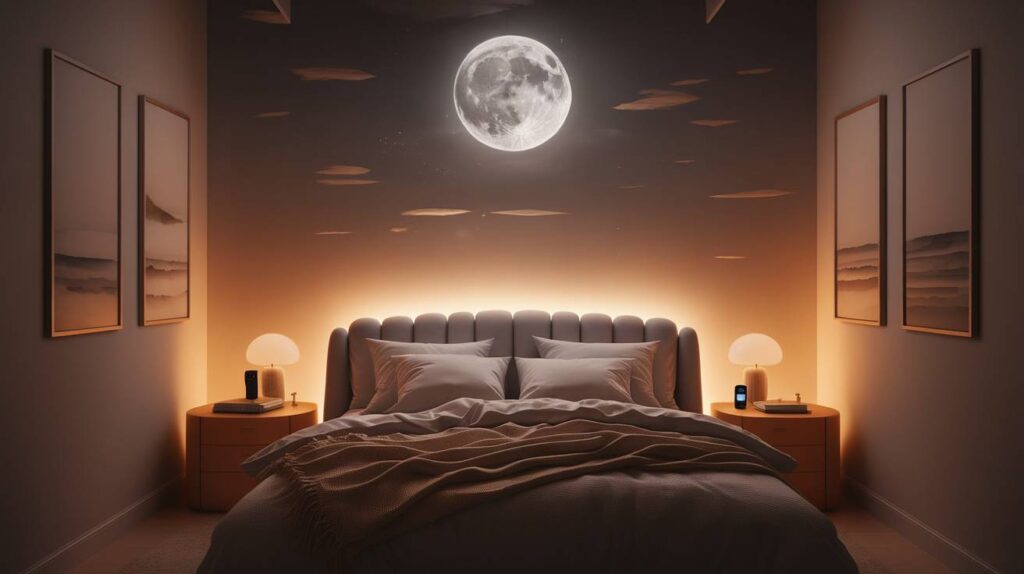
Children and Adolescents
Our tiniest humans and almost-grown-up kids need to catch more Z’s than adults, mainly because they’re growing like weeds—physically and mentally. Skimping on sleep here can mess with their school smarts, moods, and even their health.
| Age Group | Recommended Sleep (hours) |
|---|---|
| Infants (4-12 months) | 12-16 |
| Toddlers (1-2 years) | 11-14 |
| Preschoolers (3-5 years) | 10-13 |
| School-age children (6-13 years) | 9-12 |
| Teenagers (14-17 years) | 8-10 |
A good night’s sleep makes kids sharper, happier, and healthier. Help them set up a regular sleep schedule and make their room dreamy for sleeping.
Adults
Adults might not need a bucket-load of sleep like kids, but don’t think you can stay up all night just ’cause you’re grown. Lack of sleep hits adults with brain fog, cranky moods, and even makes colds harder to fight off.
| Age Group | Recommended Sleep (hours) |
|---|---|
| Young adults (18-25 years) | 7-9 |
| Adults (26-64 years) | 7-9 |
Finding time to snooze—without skipping out on life—is key. Practices like meditation before bed and following some basic sleep tips help you hit the pillow right.
Older Adults
Older folks sometimes find it trickier to sleep through the night. This might be thanks to health issues, meds, or just their body clocks ticking differently.
| Age Group | Recommended Sleep (hours) |
|---|---|
| Older adults (65+ years) | 7-8 |
Even if a little snooze time is zipped from their schedules, good quality sleep is still a must-have. Sprucing up the bedroom with sleep-friendly vibes and trying out gentle yoga might do the trick.
Getting your shut-eye game on point, whatever age you are, is a major win for overall health and feeling on top of your game every day. By figuring out what your body needs and trying out smart sleep tricks, you can boost your health and happiness, no matter how many candles are on your cake.
Wellness Strategies for Better Sleep
Getting a good night’s rest isn’t just about counting sheep; it’s about feeling awesome when you wake up. If you’re tired of waking up groggy, here are some tricks that might just help you snooze like a baby.
“A good laugh and a long sleep are the two best cures for anything.” – Irish Proverb
Creating a Space That Says “Sleep”
Your room matters when it comes to catching those z’s. Here’s the scoop:
- Comfy Sleeping Gear: If your mattress feels like a rock or your pillow is a pancake, it might be time for an upgrade. Check out what’s hot in comfortable mattresses right here.
- Cool Room Temperature: Imagine your bedroom as a mini-Igloo. Keeping it cool around 60-67 degrees can make your sleep snug as a bug.
- Dark and Quiet: Curtains that block light and a decent set of earplugs can be your best buddies to keep distractions at bay.
- Declutter for Peace: A tidy room = a tidy mind. Cut the clutter to help your brain switch off. Want more tips? Read our guide on organizing your sleep sanctuary.
Stickin’ to a Sleep Schedule
Just like setting your watch, having a bedtime routine can help your body get the memo when it’s time to shut down:
- Same Time, Every Time: Pick a bedtime and a wake-up time—and stick to it, even on weekends. Your body’s clock will high-five you for it.
- Wind Down Relaxation: Activities like reading a novel or soaking in a warm bath can give your brain a heads-up that shut-eye is on its way. Look into more ideas here.
- Ditch the Screens: Staying glued to your phone before bed isn’t doing you any favors. Keep screens away at least an hour before turning in.
- Smart Snacking: Heavy dinners, caffeine, and booze just before bed can mess things up, so keep it light. Get the lowdown on diet tips here.
Taking a Chill Pill Before Bed
Sometimes, what you need is to tell your brain to chill out before hitting the sack:
- Meditate Your Worries Away: A bit of meditation before bed can help silence the day’s white noise. Check out our how-tos on meditation.
- Breathe In, Breathe Out: Slow, deep breaths can lower stress levels and help you sail smoothly into dreamland.
- Stretch It Out: Trying some easy yoga poses before bedtime can help unknot those muscles and clear your head. Explore more about yoga poses you’ll love here.
- Sweet Scents: A whiff of lavender or chamomile can sprinkle some relaxation magic as you sleep. Discover the wonders of essential oils.
Make these sleep hacks a part of your nightly routine, and see how your sleep—and life—transforms for the better. For more on why sleep is so crucial, jump into our in-depth discussion on sleep basics.
Sleep and Special Circumstances
Mixing unique lifestyles and health quirks can really mess with sleep. Getting the hang of these odd challenges is key to feeling your best.
Shift Workers and Frequent Travelers
When you’re pulling late shifts or bouncing between time zones, sleep can go out the window. Your body’s internal clock doesn’t know which way is up, leaving you tired and dragging. Folks in this boat can hit the hay easier by sticking to a bedtime routine, tossing on an eye mask, and turning their room into a sleep sanctuary.
| Sleep Hiccup | Quick Fix |
|---|---|
| Whacked-out sleep schedule | Stick to a sleep routine |
| Trouble snoozing during the day | Block out the world with blackout curtains and white noise |
| Jet lag blues | Slowly shift your sleep before you hit the road |
Check out more about sleep hygiene and spruce up your snooze space with our bedroom optimization tips.
Individuals with Chronic Health Conditions
Got something chronic like diabetes or heart trouble? These can mess with your zzz’s. Taking charge of these conditions can lead to better sleep and overall wellness. Docs usually suggest shaking up your life a bit with some meds, lifestyle tweaks, and Mother Nature’s help.
Try these:
- Unwind with mindfulness and relaxation tricks
- Stretch out with some easy yoga for sleep
- Munch smart (see how diet impacts sleep)
| Health Hangup | Sleep Hassle | What Helps |
|---|---|---|
| Diabetes | Night trips to the loo, twitchy legs | Watch the sugar, keep clean sleep habits |
| Heart Woes | Widowed sleepers and restless nights | Move more, chill out |
| Chronic Aches | Hard to catch those Z’s | Manage the pain, check best health-friendly beds |
Insomnia Sufferers
Tossing and turning instead of snoozing? Insomnia’s got your name on it. People often juggle between pills and natural fixes to find relief. Nailing down a bedtime pattern, cooling down with some relaxation, and tackling stress head-on can be game-changers.
| What Keeps You Up | Natural Picks |
|---|---|
| Hard to fall asleep | Calming essential oils, chill with meditation |
| Popping awake | Breathe easy exercises, cozying up your sleep space |
| Can’t stay still | Sneak in a power nap, get moving with some exercise |
For deep dives into natural sleep help, swing by our natural aids article.
Getting a grip on these unique circumstances can seriously boost your sleep game, leading to better health and a happier you.
Physical Activity and Sleep
Get moving and sleep like a baby—sounds too good to be true, right? But squeezing in some regular exercise can really flip the switch on how well you sink into dreamland.
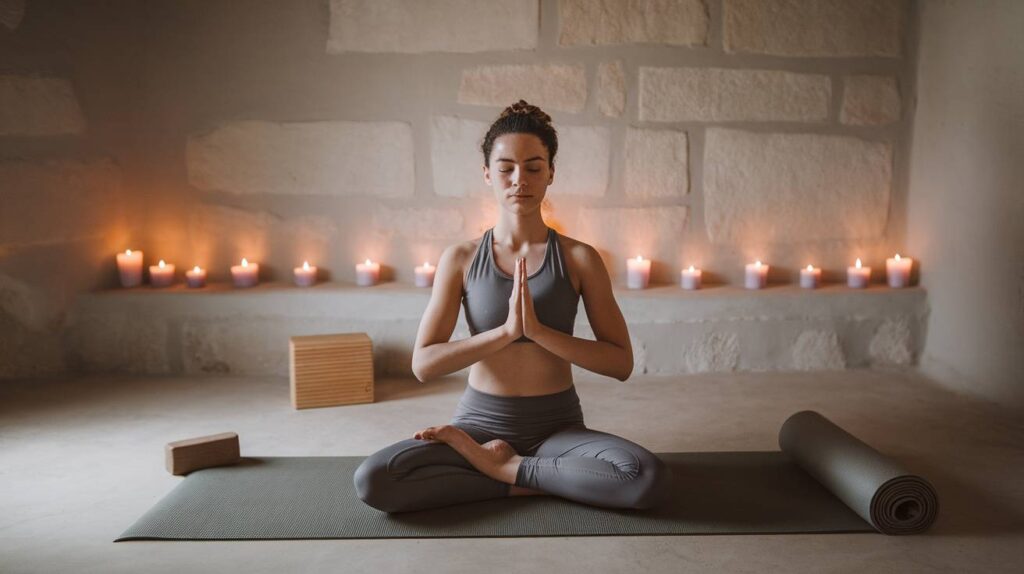
Exercise and Quality of Sleep
Working up a sweat isn’t just about those snazzy new sneakers or shedding a few pounds—it’s also a ticket to snooze-ville. Exercise knocks out the time you spend tossing and turning, inviting deeper, more restful sleep. You know, the kind that lets your muscles repair, your immune system kick butt, and your mood hit a high note. Those sweet endorphins we love from a good workout? They’re also great at sending stress packing.
| What Exercise Does | How It Helps Sleep |
|---|---|
| Less Tossing and Turning | Fall asleep faster |
| Boosts Deep Snooze Time | Deep sleep means better recovery |
| Steadies Your Mood | Less stress, more Zzz’s |
| Better Sleep All Around | Say goodbye to constant wake-ups |
Wanna know more about how breaking a sweat helps catch some z’s? Check out our cool piece on exercise and sleep.
Timing of Exercise for Improved Sleep
Now, when you lace up those gym shoes matters—a lot. Sure, fitness helps sleep, but sweat at the right time, and you’ll really cash in on those bedtime benefits.
- Morning Moves: Getting your heart rate up in the AM can crank your body clock into gear. Hello, alert days and good nights!
- Afternoon Action: As your core temp heats up when exercising and then drops afterwards, your body’s like, “Yo, bedtime!” It’s a natural sleep-enhancer.
- Evening Enthusiasts: Some folks live for late-night workouts, but for others, jitters from adrenaline might crash the sleep party. If it messes with your sleep, chill out a couple of hours before hitting the hay.
| When You Work Out | Sleep Perks |
|---|---|
| Morning | Tunes your body clock, keeps you perked |
| Afternoon | Cooling down steers you to slumber |
| Evening | Adrenaline may mess with bedtime |
Setting yourself up with some daily exercise and solid sleep habits is a win-win. Need some help with crafting the perfect sleep groove? Don’t miss our tips on sleep routine.
And to really nail the art of sleep, mixing in some chill-out techniques like meditation for sleep could round off your approach to sweet dreams and overall wellness.
Nutrition and Sleep
Figuring out how your diet plays into sleep and feeling good is key if you’re trying to catch better Z’s. What you chow down on can make or break your quality shut-eye, so picking the right stuff to munch on is a big deal for staying on top of your game.
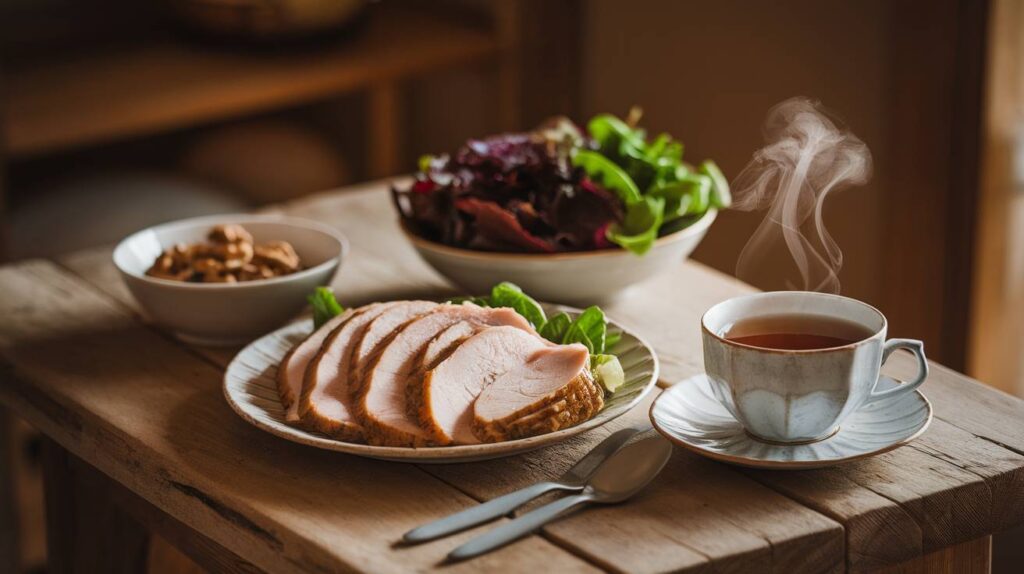
Diet Impact on Sleep Quality
The link between what you eat and how you sleep is a biggie. Munching on certain foods and drinks can mess up or help your sleep patterns. Slurping down too much sugar or grabbing a late-day coffee can keep you up, while loading up on the right nutrition can send you off to dreamland quicker.
| What’s On Your Plate | How It Messes with Your Sleep |
|---|---|
| Coffee | Keeps you wide awake if you sip it too late |
| Sugar | Gives you energy jots; wakes you up at night |
| Booze | Knocks you out at first but then it messes with sleep cycles later |
| Tryptophan | Chills you out and gets you sleepy |
| Magnesium | Keeps sleep steady and healthy |
Knowing how these ingredients mess with your sleep can help you tweak your diet. For the skinny on how stuff in your diet affects sleep, check our write-up on diet and sleep.
Foods and Nutrients that Promote Restful Sleep
Certain foods and nutrients are like bedtime magic. Pile these onto your dinner plate, and they could help you catch better Z’s and feel great all-around.
- Tryptophan: This amino acid is your sleep buddy, as it cranks up your serotonin levels, turning into melatonin, the shut-eye hormone. Turkey, bananas, and nuts are loaded with tryptophan.
- Magnesium: It’s like a natural chill pill for your nervous system. Green leafy stuff, nuts, and seeds pack a magnesium punch.
- Calcium: Teams up with tryptophan to help make melatonin, getting your sleep cycles in sync. You’ll find it in dairy goods and beefed-up plant milks.
- Vitamin B6: Helps churn out melatonin, found in fish, taters, and other veggies subbed out of the fryer.
- Omega-3 Fatty Acids: These calm things can ease sleep apnea symptoms and other sleep bummers. Fatty fish, flaxseeds, and chia seeds are good bets.
| Power Nutrient | What It Does | Get It From Here |
|---|---|---|
| Tryptophan | Boosts serotonin; makes melatonin | Turkey, bananas, nuts |
| Magnesium | Relaxes the nervous system | Leafy greens, nuts, seeds |
| Calcium | Helps crank out melatonin | Dairy, plant-based milks |
| Vitamin B6 | Gets the melatonin flowing | Fish, starchy grub |
| Omega-3s | Cuts down on sleep problems | Fatty fish, flaxseeds, chia seeds |
Eating more of these goodies in your diet can really up your sleep game and how you feel day to day. For more tips on jazzing up your sleep, look at our article on sleep routine.
Plus, taking time to cool down with stuff like meditation for sleep goes hand-in-hand with a food-focused sleep plan. These tactics together sum up a whole way to get better rest and feel fired up.
Holistic Approaches to Sleep and Wellness
Getting that elusive good night’s sleep and feeling all-around awesome isn’t just about hitting the sack at a decent hour. A mix of chill mind-body stuff and calling in the pros when the sheep-counting just isn’t cutting it might be the ticket. These tried-and-true tricks can up your sleep game and keep you cruising through life with some extra pep in your step.
Mixing in Some Mind-Body Magic
Mind-body practices are like the secret sauce for a good snooze and a happier you. They’re all about squashing stress, kicking back, and setting the stage for sweet dreams.
Meditation and Mindfulness
Meditation and mindfulness? Think of these as your go-to stress busters. They help you hit pause on the constant spinning thoughts and anxiety that barge in before bed. Sticking with it can help everyone, from the workaholic to the frazzled student, take the edge off and sleep better. Take a peek at our meditation for sleep guide to jump in.
Yoga and Stretching
Yoga and some sneaky pre-bed stretching can do wonders for tired muscles and frazzled nerves. Those gentle moves can switch off the tension and switch on the Zzzs. Poses that let you droop forward or sprawl out in restorative styles are gold for sleep. Discover more in our yoga for sleep section on how to squeeze it into bedtime rituals.
Breathing Exercises
Breathing? Yeah, you do it all the time, but doing it right can chill your ticker and lull your body to sleep mode. Simple stuff like deep breathing or trying to do the nostril switch-a-roo gets your mind calm and ready to hit the hay.
Bringing in the Sleep Pros
If you’ve tried all the DIY sleep tricks and you’re still tossing and turning, maybe it’s time to call in the experts. Some sleep challenges benefit from the insight and treatments that certified sleep gurus offer.
Sleep Specialists
These sleep wizards can tap into their bag of tricks, diagnosing and treating pesky sleep invaders like apnea or the dreaded insomnia. They might even hook you up with a sleep study to see what the deal is while you snooze. Get the lowdown in our section on sleep disorders.
Therapists and Counselors
When insomnia digs in its heels, therapists using cognitive-behavioral therapy (CBT) can help give those pesky negative thoughts the boot. Plus, counselors can help you untangle stress or mental roadblocks keeping you up at night. Our sleep mental health article dives deeper into this topic.
Nutritionists
What’s on your plate can seriously mess with or help your sleep. Nutritionists are the pros who can help map out meals that bring on the Zzzs. Exploring the link between diet and sleep is a must for whipping up sleep-friendly meal ideas.
Integrative Medicine Practitioners
These folks blend old-school and modern methods, with goodies like acupuncture, herbs, and massages that can soothe the body and soul, doubling as natural sleep aids and total wellness boosters.
By sprinkling in some mind-body magic and checking in with the experts, anyone can tune up their sleep and overall well-being. If you’re looking to tweak your sleep setup further, be sure to check out our article on bedroom optimization for sleep.
Conclusion
Sleep isn’t a luxury; it’s a fundamental pillar of health and happiness. When you prioritize rest, your body thanks you with sharper focus, stronger immunity, balanced emotions, and even healthier aging. Crafting a sleep sanctuary, aligning with your body’s natural rhythms, and embracing wellness practices such as yoga, balanced diets, and meditation can radically improve your sleep quality. Remember, great sleep doesn’t just boost nightly recovery but optimizes your day-to-day performance and longevity. Whether you’re a parent juggling chaos, a shift worker battling odd hours, or feeling drained without explanation, the solutions lie in the bedtime tweaks explored here. Sleep better, and you’ll live better—guaranteed.
FAQs: Unraveling Healthier Sleep Habits
What makes sleep essential for wellness?
Sleep restores physical energy, sharpens the mind, balances emotions, repairs cells, and regulates vital hormones. It’s essential for peak performance.
How does lack of sleep affect physical health?
Insufficient sleep weakens immunity, increases the risk of heart disease, diabetes, and weight gain, disrupts hormones, and impacts body recovery.
What are the best foods for better sleep?
Foods rich in magnesium, tryptophan (e.g., turkey, bananas), and omega-3 fatty acids promote relaxation and better sleep cycles.
How do sleep cycles influence rest quality?
Each sleep cycle, lasting roughly 90 minutes, includes deep non-REM and REM sleep, playing key roles in recovery, memory consolidation, and cognitive function.
What are simple steps for improving sleep hygiene?
Establish a regular sleep schedule, avoid screens before bed, create a calm sleep environment, and unwind with techniques like meditation or yoga.
Resources
- Centers for Disease Control and Prevention (CDC): Sleep and Health
Learn More - National Sleep Foundation: Science Behind Sleep
Explore Science - Harvard Health: How Sleep Helps the Brain
Read More - American Academy of Sleep Medicine: Tips to Improve Sleep
Visit AASM
Final Thoughts
The road to better health, sharper focus, and emotional resilience lies in the simple act of sleeping well. Integrating sleep hygiene practices, understanding how diet and exercise interact with sleep cycles, and tailoring solutions for your unique needs can unlock a transformative wellness journey. Whether you’re battling disrupted sleep or simply looking to optimize your rest-game, small yet consistent efforts yield big benefits. Embrace your natural rhythms and prioritize sleep to wake up to a better version of yourself every single day.
Recommended Products
| Product Name | Why It Helps |
|---|---|
| Weighted Blanket | Reduces anxiety and promotes calmness. |
| White Noise Machine | Blocks external disruptions. |
| Essential Oil Diffuser | Creates a calming atmosphere. |
| Sleep Tracking Smartwatch | Monitors sleep stages and patterns. |
| Hybrid Mattress with Cooling Gel | Ensures optimal support and temperature regulation. |

